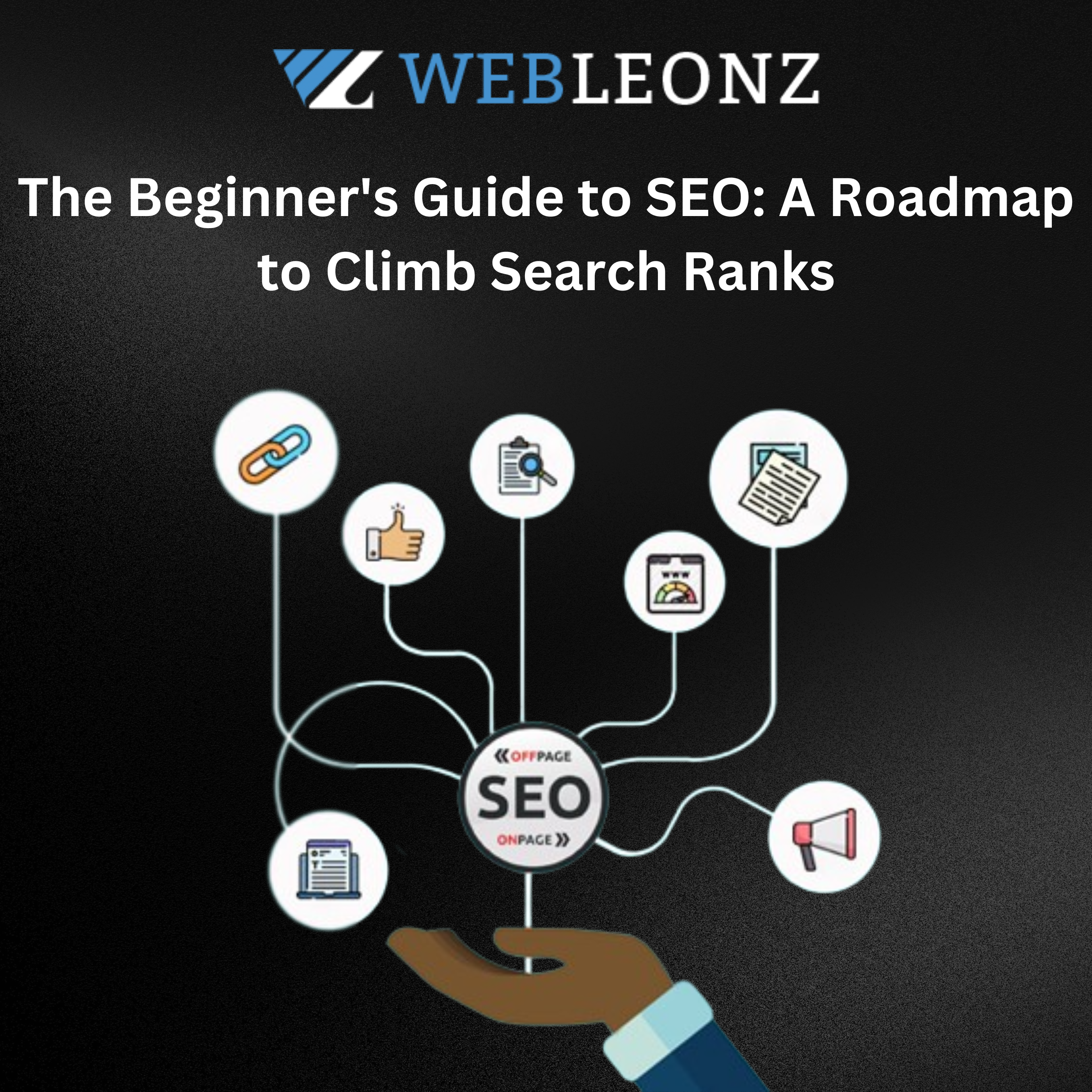Introduction:
In the current digital era, both individuals and businesses need to have a strong online presence. Search engines like Google, Bing, and Yahoo play a significant role in connecting users with the information they seek. Search engine optimisation, or SEO, is the key to making sure your content and website are discoverable by those users. If you’re new to the world of SEO, you’ve come to the right place. This beginner’s guide will provide you with the fundamentals of SEO, helping you understand what it is, why it’s essential, and how to get started.
What is SEO?
The process of improving your website’s exposure in search engine results pages (SERPs) is known as search engine optimisation, or SEO. It involves a range of strategies and techniques aimed at improving the ranking of your web pages for specific keywords or phrases. The higher your website ranks, the more likely it is to be visited by users searching for information, products, or services related to your content.
Why is SEO important?
SEO is important for several reasons:
Increased Visibility: Higher rankings in search results mean more people find your website, which can lead to increased traffic.
Targeted Traffic: SEO helps attract users who are actively searching for what your website offers, making them more likely to convert into customers.
Credibility and Trust: People tend to view websites higher up in search results as having greater credibility and trust.
Competitive Advantage: SEO can give you an edge over competitors by capturing a larger share of the online audience.
Cost-Effective Marketing: Organic (non-paid) traffic generated through SEO is more cost-effective than paid advertising.
Key elements of SEO
To make SEO work for you, you need to understand its key elements:
Keywords: Keywords are the search terms that users enter into search engines. Effective keyword research is the foundation of SEO. It entails figuring out what keywords your intended market uses.
On-page SEO: This includes optimising your website’s individual pages by using relevant keywords in page titles, headings, and content.
Off-page SEO: Off-page SEO involves building high-quality backlinks from other websites to improve your site’s authority and credibility.
Technical SEO: Technical aspects like website speed, mobile friendliness, and proper site structure are crucial for SEO.
Content: High-quality, informative, and engaging content is essential for attracting and retaining visitors.
How to Get Started with SEO
Getting started with SEO (Search Engine Optimisation) can be intimidating, but it’s a critical skill for increasing the exposure of your website in search engines and boosting organic traffic. Here’s a step-by-step approach to getting started with SEO:
Understand the Fundamentals:
Begin by studying basic SEO concepts such as keywords, on-page optimisation, off-page optimisation, and technical SEO. There are numerous online tools, blogs, and courses available to help you understand these topics.
Keyword Research:
Keyword research is an essential component of SEO. To uncover appropriate keywords and phrases for your website or content, use keyword research tools such as Google Keyword Planner, Ahrefs, SEMrush, or Ubersuggest. Prioritise terms with a high search volume but low competition.
On-page SEO:
You can improve your website’s chances of ranking higher in search engine results pages (SERPs), attract more organic traffic, and provide a better user experience to your audience by using on-page SEO best practices. This strategy, when supplemented with off-page SEO strategies like link-building and social signals, is critical to reaching your digital marketing objectives.
Off-page SEO:
Off-page SEO is an important aspect of improving a website’s exposure to search engines. While on-page SEO focuses on aspects within your website, off-page SEO focuses on external factors that influence the authority and credibility of your website. The basic goal is to establish your website in the eyes of search engines and users as a reliable source of information, products, or services.
Technical SEO:
Technical SEO is a critical component of website optimisation. It focuses on boosting your website’s technical components in order to improve its search engine performance. While it is not as obvious as on-page or off-page SEO, it is crucial to ensuring that your website is accessible, indexable, and user-friendly for both users and search engines.
Making Content:
Produce high-quality, relevant, and interesting material that appeals to your target audience on a regular basis. Your information should be useful and should address users’ questions.
Link Building:
Create high-quality backlinks from reputable websites to boost the authority and credibility of your website. You can accomplish this via guest posting, contacting industry leaders, or providing great material that others will want to link to.
Local SEO:
If you own a local business, optimise it for local search by creating a Google My Business listing and providing consistent NAP (name, address, and phone number) information throughout the web.
Conclusion:
SEO is a critical component of your internet strategy. It’s not just about increasing the exposure of your website; it’s also about interacting with your target audience and providing them with useful information. Do you want to rank your website and learn the principles of SEO step by step? Contact Webleonz Technologies; our staff is made up of individuals who will assist you with all of your demands. Webleonz Technologies is committed to understanding their clients’ needs and providing world-class customer service, best practices, and outcomes.


